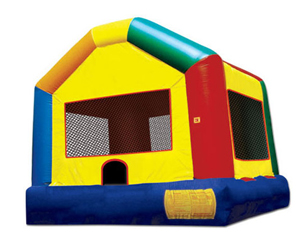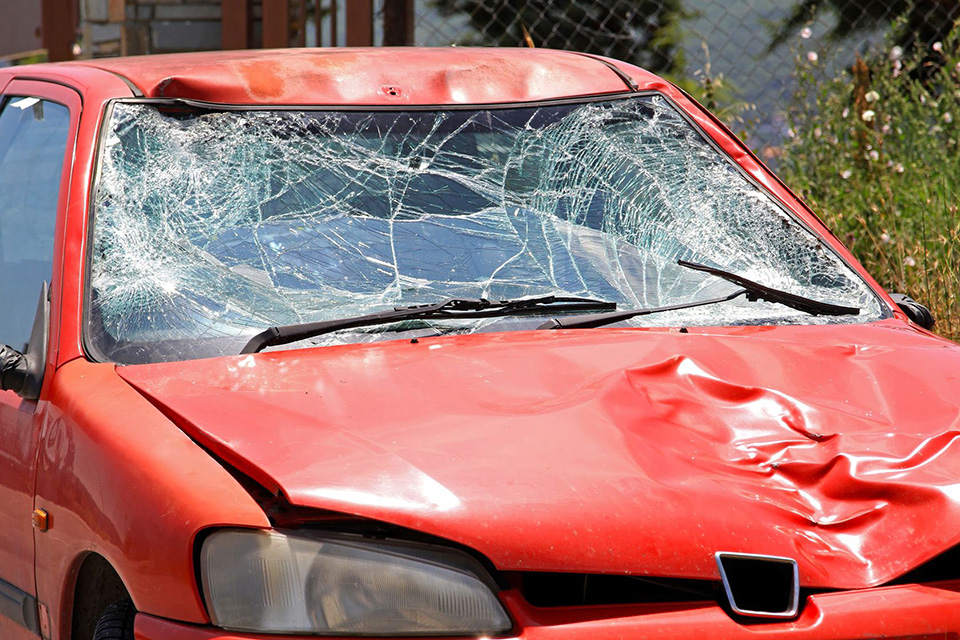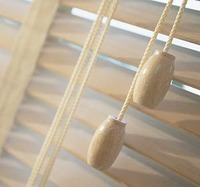Consumer Protection
Good News for Massachusetts Consumers: SJC Affirms Damages Remedies in Insurance Bad Faith Case
Last week the Massachusetts Supreme Judicial Court issued an important and strongly pro-consumer decision in the case of Rhodes v. AIG Domestic Claims, Inc., 461 Mass. 486 (2012). The decision erased uncertainties created by an Appeals Court decision in the same case (78 Mass. App. Ct. 518 (2010). The decision sends the message that insurance companies will have to pay when they do not treat consumers fairly. Attorney David W. White has written an in-depth summary, which you can read by on our website.
In this case, the plaintiff’s car was hit from behind by an 18-wheel truck. The impact fractured her spinal cord and left her paraplegic. She also suffered broken ribs. She brought claims, along with her husband and her children.
The claims management company was AIG Domestic Claims, Inc. (AIGDC). The company delayed making a settlement offer, then finally made a very low one. Another offer came during trial, this one only slightly better.
The plaintiff rejected all offers and secured an $11.3 million judgement at a trial in Superior Court in September 2004.
Defendant appealed, and AIGDC failed to pay the judgment until after a c. 93A letter was sent and suit was instituted in a second action for violations of c. 93A and c. 176D.
Plaintiff prevailed, but appealed when they were not awarded full damages based upon the judgment.
The Appeals Court affirmed in part, but did not find the proper measure of damages should be based upon the judgement. The SJC granted further appellate review.
The SJC reversed. Affirming its earlier decisions in Hopkins v. Liberty Mutual Ins. Co., 434 Mass. 556 (2001) and Bobick v. United States Fid. & Guar. Co., 349 Mass. 652 (2003), the court held that plaintiffs did not have to show how they would have answered a settlement offer, if it had come. Rather, the court stated, “[i]t has been and remains the rule that the plaintiffs need only prove that they suffered a loss, or an adverse consequence, due to the insurer’s failure to make a timely, reasonable offer; the plaintiffs need not speculate about what they would have done with a hypothetical offer that the insurers might have, but in fact did not, make on a timely basis.”
The court also affirmed the trial court’s findings that the underlying insurer, Zurich, was not liable for violations of c. 93A.
The court held that the underlying judgment of $11.3 million should be the basis of the c. 93A judgment, and that it should be doubled.
Read more about this decision on our website.
About Attorney David W. White and Breakstone, White & Gluck
Breakstone, White & Gluck is a Boston personal injury firm which represents clients who have been injured in car accidents, truck accidents and other accidents. We have decades of experience handling c. 93A claims including insurance bad faith claims in Massachusetts. We look forward to the opportunity to assist referring counsel and clients with their 93A and c. 176D claims.
Attorney David W. White is a partner at the firm and is a past president of the Massachusetts Bar Association. He writes on cases involving c. 93A and c. 176D and is recognized on an expert in Massachusetts insurance laws. He frequently lectures on the insurance matters for Massachusetts Continuing Legal Education. Attorney White is a past president of the Massachusetts Bar Association.
Massachusetts Car Insurance Tips for College Students
 Each September, thousands of college students in Boston, Cambridge and across Massachusetts settle into campus life. And many students enjoy the extra freedom of bringing a car from home to school.
Each September, thousands of college students in Boston, Cambridge and across Massachusetts settle into campus life. And many students enjoy the extra freedom of bringing a car from home to school.
But students often make one costly mistake in the transition to college life. Students who have Massachusetts car insurance policies are required to inform their insurance companies about where the car is primarily kept. Otherwise, if there is a car accident, the insurance company might disclaim coverage, leaving the accident underinsured or uninsured completely. Students who fail to report their change of address and get into a car accident can be denied the Optional Insurance coverages on their policy.
Even if a student relocates a short distance, such as from Dedham to a dorm in Boston, he or she must inform the car insurance company where the vehicle will now be kept. The reason? Car insurance companies rate the coverage — and therefore the cost — on where the car is principally kept. If the car moves from a low-rated area (with fewer accidents) to a higher-rated area, the cost goes up. And if you are not paying the premium for the place where the car is principally kept, the insurance company has the legal right to disclaim coverage. And that can be harsh.
Optional Insurance Coverages Potentially At Risk Include:
Bodily Injury: This protects you from claims against your personal property if you cause a serious car accident.
Uninsured Auto: This coverage protects you and the people in your car if the person who causes the motor vehicle accident has no insurance.
Medical Payments: The first $8,000 in medical bills and lost wages are covered under the Personal Injury Protection (PIP), part of the Compulsory Coverage all Massachusetts drivers must purchase. Medical Payments provides policy holders extra protection for medical and health insurance.
Collision Comprehensive: If you are involved in a car accident, this coverage insures the damage to your vehicle.
Insurance issues can be very complicated, and you should not hesitate to call your agent if you have any questions.
Click here to read our article, “Understanding and Buying Massachusetts Car Accident Insurance.”
Another resource is, “Frequently Asked Questions on Auto Insurance,” by the Massachusetts Consumer Affairs and Business Regulation office.
Massachusetts Court Rules Against Insurer in Bad Faith Case – Victory for Consumers
The Massachusetts Appeals Court recently ruled that Metropolitan Property and Casualty Insurance Company may have violated state law when it failed to make prompt payments on a no-fault claim. The ruling reversed a trial court decision, and remanded the matter to the trial court for further proceedings on the plaintiff’s claims against the insurance company for bad faith.
Importantly, the court stated that the emotional distress the plaintiff claims she suffered could be considered as part of her damages under the Consumer Protection Act, M.G.L. c. 93A. There is very limited authority in Massachusetts for emotional distress damages in claims under M.G.L. c. 93A.
The facts of the case were straightforward. Ms. Chery was injured in a car accident and obtained medical treatment. Metropolitan was responsible for personal injury protection (PIP) benefits, but failed to pay the bills within thirty days, as required by M.G.L. c. 90, Sec. 34M. The plaintiff filed suit, claiming violations of c. 90, c. 93A, and c. 176D, which governs claims and settlements. The insurance company eventually paid the bills, then claimed it could not be liable for its bad faith claims handling. The District Court judge agreed and plaintiff appealed.
The Appeals Court agreed that the claimant had no further right under the insurance contact itself, as the bills had been paid. However, the court found that there was evidence of bad faith, and the simple payment of the bills did not cure the harm caused by the delay. Among other things, the plaintiff had to file suit, incur litigation expenses, and suffer the unreasonable delay. The plaintiff also claimed that she suffered emotional distress, as her bills were put into collection, and she worried about her credit being affected. The court specifically ruled that the emotional distress damages, even though not readily quantifiable, may be considered compensable under Massachusetts law.
The case was a victory for Massachusetts consumers.
The case is Chery v. Metropolitan Property and Casualty Insurance Company, Massachusetts Appeals Court No. 10-P-103 (June 16, 2011).
We Help Consumers Who Have Been Injured by the Bad Faith of Insurance Companies
Our firm has a long history of helping consumers with claims against Massachusetts insurance companies for bad faith settlement practices. Massachusetts law can be quite favorable for consumers when an insurance company fails to settle a case when liability is reasonably clear. The court may award up to triple damages, depending on the circumstances of the case.
Please feel free to contact us if you have any questions about claims against insurance companies. Our toll free number is 800 379 1244.
Attention on Amusement Park Injuries
 The winds that lifted three inflatable bounce houses and injured 13 people in New York this weekend have put the focus on amusement ride safety as summer begins.
The winds that lifted three inflatable bounce houses and injured 13 people in New York this weekend have put the focus on amusement ride safety as summer begins.
A gust of wind picked up the inflatable bounce houses with children playing inside in Oceanside on Long Island. Parents and bystanders ran after the inflatable houses, trying to pin them to the ground but were knocked over. Eventually the houses came to the ground on their own.
Adults and children were transported to the hospital, but no one was seriously injured.
The incident follows two similar situations in Arizona. In February, an inflatable bounce house blew over a fence and onto a roof with two girls inside. One girl was seriously injured while the other suffered minor injuries. In April, four children were injured when the inflatable jumping castle they were playing in lifted up in a dust devil. The inflatable castle blew across a busy Tucson highway and landed in the median.
In March 2010, a five-year-old boy died after falling from an inflatable ride at a Wichita, Kansas entertainment complex.
The Consumer Product Safety Commission reports that between 2003 and 2007, 31,069 people went to the emergency room after being injured on inflatable amusement rides, including bounce houses and slides. Of these, 85 percent of those injured were under the age of 15. Injuries often occur when inflatables get unhinged or there are users of different sizes.
Amusement rides and backyard toys are a staple of summer, but have come under scrutiny for their safety risks in recent years. In 2004, a 38-year-old man was killed on an amusement park ride at a Shrewsbury, Massachusetts church fair. Two other people suffered personal injuries.
The Massachusetts Department of Public Safety investigated the amusement ride death and found that the man’s lap restraint was defective. The state found other riders had complained about the restraint in the days prior to the death.
The state faulted the ride’s operator, Jaro Amusements, for not keeping proper maintenance records. The employee who supervised the ride was charged with manslaughter and received 2 1/2 years probation. The victim’s family filed a wrongful death lawsuit against Jaro Amusements, the supervisor and other parties.
What to Know About Amusement Park Safety
- All amusement park rides must be inspected annually.
- Do not visit amusement parks or use inflatable rides in windy or rainy weather.
- When waiting in line for a ride, check the equipment. Are riders wearing seat belts and other safety equipment? Listen to people exiting the ride to hear if they complain about the equipment. If you have a bad feeling, step out of line.
- Amusement riders have a responsibility to exercise good judgment. This means obeying verbal instructions and warnings from ride operators, not riding under the influence of alcohol and drugs and not disabling safety devices.
- If you are injured on an amusement ride, the operator must report it to the state Department of Public Health. This includes injuries caused by small rented inflatable rides used at backyard birthday parties and other events.
What to Know About Rented Inflatable Amusement Rides
- If you are renting an inflatable device or other amusement ride, ask the owner when it was last inspected.
- Carefully inspect the rented piece of equipment for excessively worn and damaged materials. Do not accept it in poor condition.
- Listen carefully to the set-up instructions provided by the company renting the device.
- Limit the number of users at one time to avoid injuries.
What to Know About Backyard Trampoline Safety
Backyard trampolines may look fun, but they come with dangers. In 2008, trampoline injuries sent an estimated 100,000 victims to emergency rooms with serious injuries such as spinal cord injuries, broken bones and head injuries. In some cases, victims have been permanently paralyzed.
- Never let children jump on the trampoline without adult supervision.
- Children under the age of 6 should never use a trampoline. The journal Pediatrics calls children this age “top-heavy” and said when they fall on trampolines, they often suffer head injuries.
- Only one person should jump at a time.
- Do not allow flips or somersaults. The Consumer Product Safety Commission reports this is one of the leading causes of trampoline injuries.
- Install safety netting around the trampoline, but advise users the netting does not mean they can do flips or other unsafe maneuvers. Carefully explain they cannot bounce off it in any way.
- Cover the trampoline’s steel rim and springs with a safety pad so users do not fall through the openings. Do not allow people to sit on the safety pad.
- Users should step onto the trampoline and step off. They should never jump off. This could lead to trampoline accidents.
- Follow the manufacturer’s recommendations for when to replace parts. Different parts have different lifespans and failure to replace could result in serious personal injury.
Salmonella in Alfalfa Sprouts Prompts Recall in Massachusetts
UPDATE
Jonathan’s Sprouts of Rochester, MA, has widened the recall of its sprout products due to Salmonella contamination. The recall now includes all sell-by dates, including its conventional, organic, and bulk products. The recall includes other sprouts, such as radish, dill, and gourmet mix. Check below for stores where these products were sold. Do not eat them! Return them to the store for a refund.
More information: FDA Recall Press Release.
ORIGINAL POST
The USDA has found Salmonella, a dangerous bacteria related to food poisoning, in Jonathan’s Alfalfa Sprouts products.
 Salmonella, if ingested, can cause serious and sometimes fatal illness and infections in young children, frail or elderly people, and others with weakened immune systems. The symptoms of Salmonella include fever, diarrhea (possibly bloody), nausea, vomiting, and abdominal pain.
Salmonella, if ingested, can cause serious and sometimes fatal illness and infections in young children, frail or elderly people, and others with weakened immune systems. The symptoms of Salmonella include fever, diarrhea (possibly bloody), nausea, vomiting, and abdominal pain.
Jonathans Sprouts has issued an immediate recall of the following effected products:
- Jonathan’s 4oz Alfalfa Sprouts
- Jonathan’s 4oz Alfalfa with Radish Sprouts
- Jonathan’s 4oz Gourmet Sprouts
- Jonathan’s 4oz Alfalfa with Dill Sprouts
- Jonathan’s 8oz Alfalfa Sprouts
Window Blind Design Reconsidered After Numerous Infant Deaths
The Consumer Product Safety Commission (CPSC) has asked manufacturers to re-design window blinds so as to eliminate the risk of infant wrongful death from strangulation.
Window blind manufacturers have known about the problem for decades, starting with a federal study in the 1980s that tied 41 child strangulation deaths to drapery and blind cords. Since then, manufacturers have dragged their feet when it comes to improving safety.
And infants are still dying. The NY Times reports that in August 2009, Kathleen Leeson put her 2-year-old son down for a nap. A short time later, Ms. Leeson discovered her son hanging, lifeless, an inch off the floor with the window blind cord wrapped around his neck. Further, in 2002 1-year-old Cheyenne Kaiser was found by her mother strangled sitting up in her crib, which was next to the window, with the inner window blind cord wrapped around her neck.
The CPSC has released a safety alert for concerned parents explaining the risk of personal injury and wrongful death to children from the various types of window blind cords. In its safety alert, the CPSC makes four recommendations to help prevent these tragic strangulation injuries:
- Use only cordless window blinds in all homes where children live or visit;
- Do not place cribs, beds, or furniture close to windows where children can climb and gain access to the cords;
- Make all loose cords inaccessible; and
- In windows with looped bead chains or nylon cords, use tension devices to keep the cord taut.
Moreover, in response to the industry’s unenthusiastic attempts at improving product safety, a task force of regulators, consumer advocates, and industry leaders have come together to find a solution by the fall of 2011.
The CPSC has also warned the window blind industry that, if it cannot reach a solution soon to minimize these life-threatening dangers, it may face mandatory safety regulations.
Warning to Massachusetts Residents: Tea Light Candles Recalled Due to Holder Burn/Melt Risk
Over 7 million candles have been recalled due to concerns that the cup holding the candles could melt or catch fire.
The Consumer Product Safety Commission has stated that the defective products, tea light type candles, were sold under the brand names Chesapeake Bay Candle and Modern Light.
The affected candles were sold in Massachusetts and nationwide at retailers such as Home Goods, Target, and Wegmans between July 2009 and February 2011.
The clear plastic cup holding the candles is at risk for melting or igniting during use. There has been one consumer report of the candle’s plastic cup melting during use.
Salmonella Outbreak in Rhode Island Now Linked to Death
A salmonella outbreak in Rhode Island now includes at least twenty-one people with severe illness, and one death, according to reports from public health officials in that state. Health officials are investigating another eighteen illnesses to see if they are tied to the salmonella outbreak.
Officials are focused on zeppole and other pastries which were made by Defusco’s bakery in Johnston, Rhode Island. According to news reports, investigators found pastry shells stored in boxes contaminated with raw eggs, and also found that custard used as filling was not being properly chilled.
Investigators have identified the particular strain of salmonella, known as Salmonella heidelberg, as the suspected organism responsible for the illnesses. They are now trying to determine whether the death of the elderly Rhode Island resident was caused by that particular strain.
The investigation into the food poisoning outbreak began on March 25, 2011, after nearly a dozen elderly residents of a Warwick nursing home became sick after eating pastries from Defusco’s bakery. Since March 12, two dozen victims have required hospitalization for severe illness.
Salmonellosis, the disease caused by salmonella infection or salmonella toxins, leads to diarrhea, fever, vomiting and abdominal cramps. Most people recover without treatment, but in the elderly, in infants, or people with compromised immune systems, the disease can be very severe, requiring hospital admission for rehydration and antibiotic treatment to prevent the spread of infection. Severe infections can lead to reactive arthritis and death.
Prevention of salmonella illnesses is straightforward. Food which may contain the bacteria, such as chicken or pork, must be prepared properly to kill the organism and destroy any salmonella toxin. Eggs and milk, and their products, must be properly prepared, handled, and refrigerated. Infections can also occur from contact with reptiles, pet rodents, and tainted fruits and vegetables. Proper hygiene–washing hands before and after handling food–is also a common sense method of reducing the likelihood of food poisoning.
Each year over 140,000 people suffer from salmonella poisoning in the U.S. and dozens die from the illness.
Massive Egg Recall Prompts Calls for Food Safety Overhaul
We urge government officials and farms to reconsider food safety measures after the recall of a half-billion eggs and the salmonella poisoning of over 1,300 Americans. And it is time for Congress to act on pending legislation that would strengthen the Food and Drug Administration’s (FDA) ability to protect the public.
Earlier this month, Wright County Egg of Galt, Iowa issued a voluntary recall of 380 million eggs on its five farms. Shortly thereafter, the FDA and the State of Minnesota identified Hillandale Farms in Iowa as a second source of contamination. Some 550 million eggs were recalled overall.
As the agencies investigate, many are calling for government reform on several fronts.
First, there is the problem of government oversight. The FDA has authority over shelled eggs sold in the grocery store. Yet the United States Department of Agriculture (USDA) has jurisdiction over chickens and any eggs cracked before shipping. Individual states also have inspection power of farms.
These agencies may have contradicting priorities and problems with coordination. In the case of Wright County Egg, the agencies lacked any knowledge of the others’ work.
A CBS News report shows state inspectors visited one of Wright County Egg’s sites in April, without reporting on 27 key inspection points, including questions about on-site birds, insects and rodents.
The report explains the state inspector saw no need because the farm was assigned a full-time USDA inspector. But the USDA claims its inspector was only responsible for measuring eggs and finding cracked shells.
“When you have multiple agencies in charge of a single issue, sometimes no one’s in charge,” Caroline Smith Dewall, Director of Food Safety at the Center for Science in the Public Interest, told CBS News. Click here to watch the CBS News video.
Another troubling point CBS News uncovered was the frequency of inspections. Shockingly, records obtained by the news outlet show the FDA has not inspected 56 percent of the nation’s food production facilities and farms in the past five years.
Consumers deserve better protection. The legislation that would address these issues is stalled in Congress. The legislation would increase the frequency of inspections and provide the FDA greater authority over food production sites.
The House passed a bill, but it has remained stalled in the Senate despite widespread, bipartisan support. The bill is essential so the Obama administration can continue to revise food safety regulations, including regulations that would improve the safety of egg production.
The Boston personal injury lawyers at Breakstone, White & Gluck support this legislation and encourage you to contact your United States Senator to urge the bill’s passage.
U.S. Senator Scott Brown
317 Russell Senate Office Building
Washington D.C. 20510
Phone: (202) 224-4543
U.S. Senator John Kerry
218 Russell Bldg.
Second Floor
Washington D.C. 20510
Phone: (202) 224-2742
Read More
Product Safety Recall: Baby Tents Pose Strangulation Risk
Just weeks after a massive children’s crib recall, a portable playard tent linked to a young boy’s fatal strangulation has been pulled for safety.
The U.S. Consumer Product Safety Commission (CPSC) and Health Canada, in cooperation with Tots in Mind Inc. of Salem, New Hampshire, has announced the voluntary recall of 20,000 Cozy Indoor Outdoor Portable Playard Tents Plus Cabana Kits. An additional 85 tents were recalled in Canada.
The tent is a white dome-shaped covering designed to fit over playards that contain a child. In December 2008, a two-year-old boy from Vinalhaven, Maine died when he climbed out of the playard. He was found hanging with his neck entrapped between the playard frame and the metal base rod of the tent. In this case, the tent had been tied to the playard with pieces of nylon rope and partially attached with the tent’s clips because the child knew how to remove the clips.
In three other incidents, children removed the clips on the tent and were able to place their necks between the tent and the playard. The children were not injured.
The unsafe cribs were made in China and sold at Walmart, Amazon and various baby stores from January 2005 to February 2010.
Consumers should immediately stop using the playard tents. They can contact Tots in Mind to get free replacement clips. Replacement clips will be available in late August or early September.
This is the second major product safety recall affecting parents and children in recent weeks. In June, the CPSC recalled two million cribs because of an unsafe drop-side rail, which created a gap where a baby’s head could become trapped. Government officials say this could lead to suffocation or strangulation.
The companies involved in the recall include Evenflow, Delta Enterprises Corp., Child Craft, Jardine Enterprises, LaJobi, Million Dollar Baby and Simmons Juvenile Products Inc.
Read More




